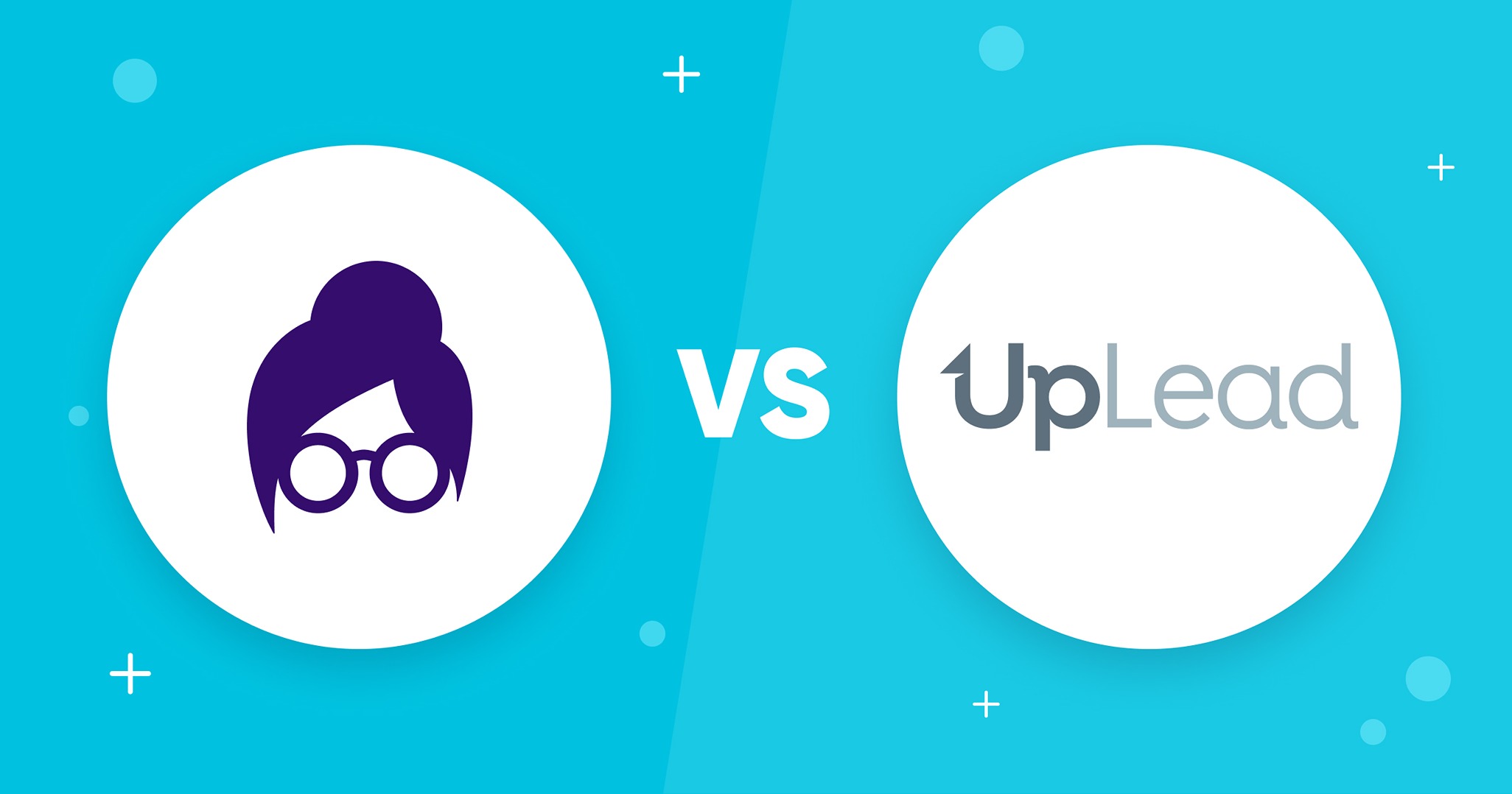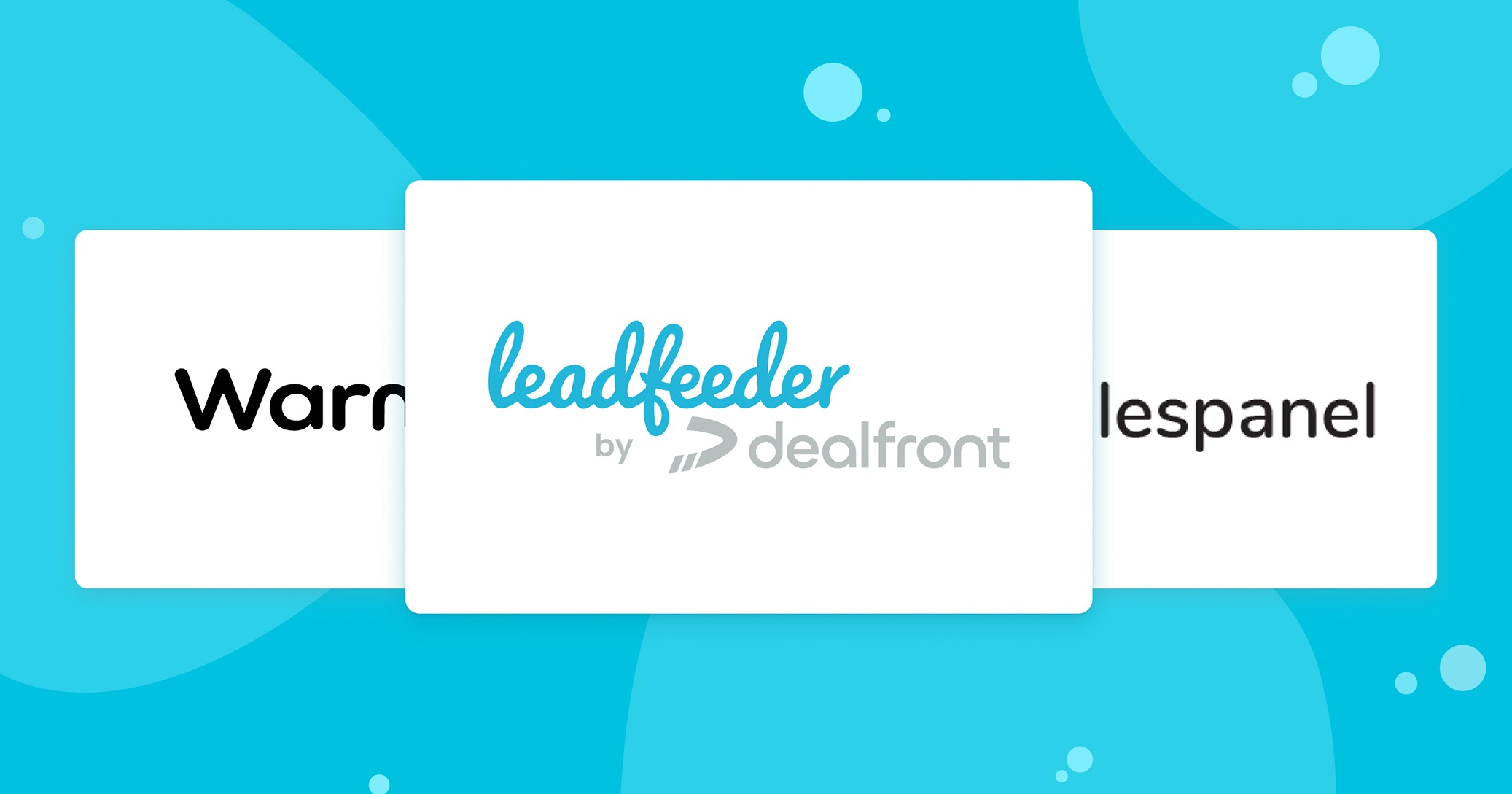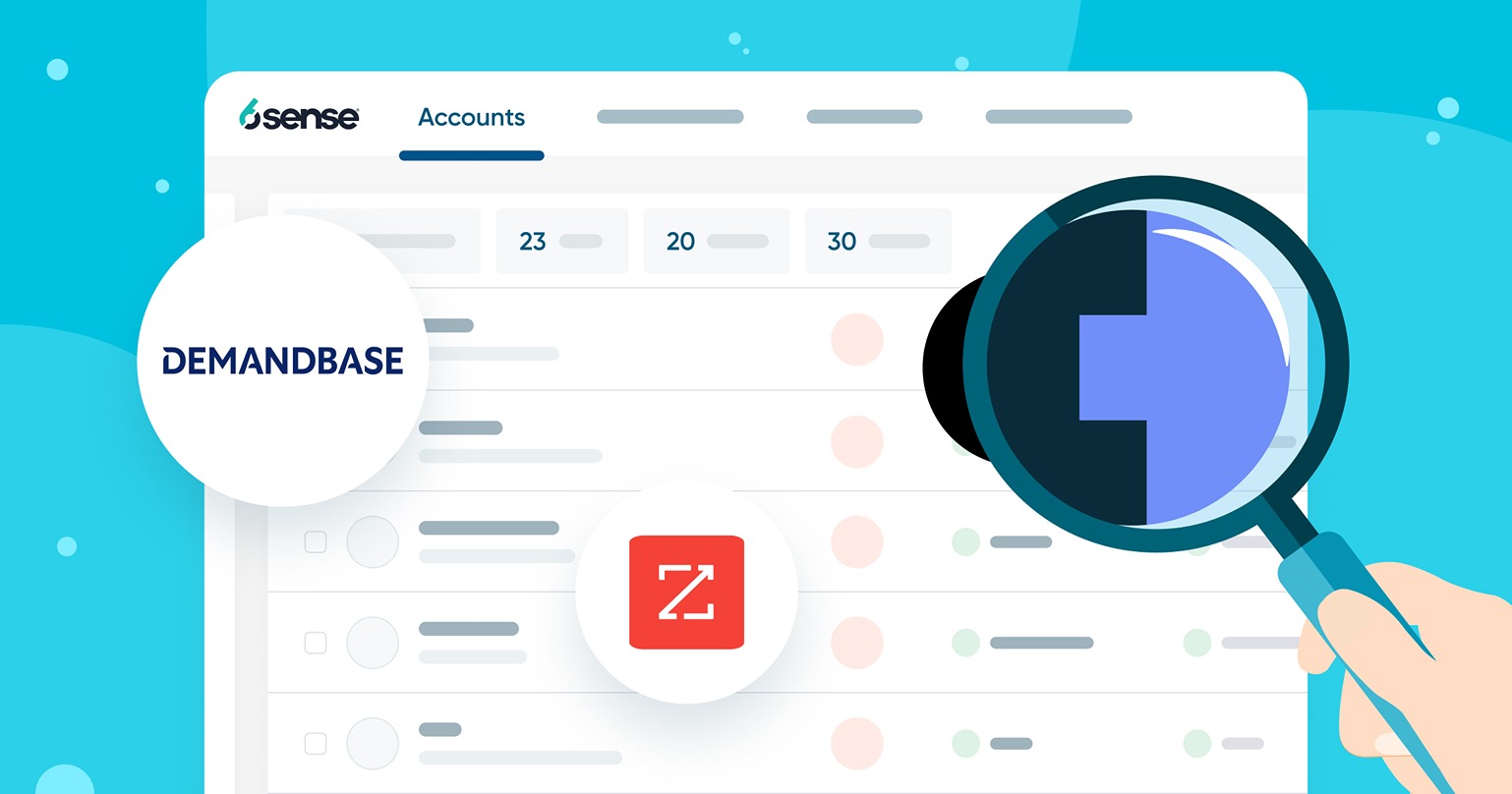Dan Martell is the founder and CEO of SaaS Academy, where he works with founders and coaches them to fast-track their companies. That aside, Dan is also an award-winning angel investor, and he has a knack for identifying promising startups that eventually grow into billion-dollar companies, including Intercom, Hootsuite, GetAround, and Udemy.
In this UpLead Growth Chat, we sat down with Dan to pick his brain on what he learned from the five companies he started before he went into coaching, and how he grew SaaS Academy into the prestigious program it is today. To jump to specific segments of our interview, click on the relevant links from the Table of Contents above.
Early career and personal growth
Will: You started a tech company when you were 17, and a hosting company when you were 19; unfortunately, both these companies failed. What did you learn from these experiences?
Dan: As you might expect, each failure taught me a different lesson.
At 17, when I started MaritimeVacation.ca, I didn’t have a big vision for the company. I thought having 30 cottages on my platform would be a success. Unfortunately, the guy at AtTheCottage.com had a bigger vision and he won the market. Today, both our platforms have been crowded out by Airbnb, who had the biggest vision of them all.
Since then, I’ve made it a point to plan for success. This translates in many different ways, such as registering a .com domain instead of .ca (which was what I used for MaritimeVacation.ca).
At 19, I started a web hosting company with my brother because I was developing a website for people and wanted to get paid for the hosting. The big lesson there was –
“Don’t compete on price in a commoditized market, UNLESS you have a differentiated feature or product hook.”
Amazon Web Service has done this successfully, but it obviously didn’t work out for me.
Will: Great insights. On the topic of failure — there’s a fine line between persevering and being stubborn. How do you know when you need to keep going, and when you should just give up and move on?
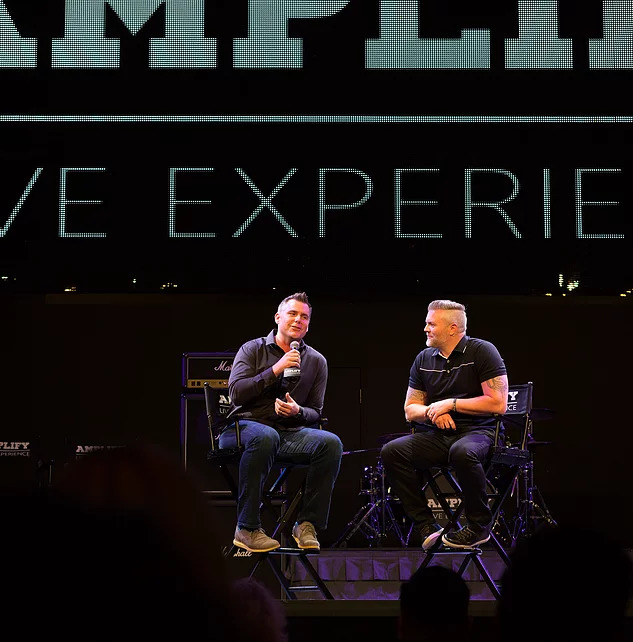
Dan: I’m always looking at the unit economics of the business, and continuously going back to my underlying principles.
Personally, I’m not stubborn, and I’m 100% willing to change my perspective on an issue if there is new compelling information that I can backtest. For me, it’s about making incremental progress towards a working business model from a distribution, cost and delivery model.
The times that I’ll pivot is when I end up iterating my way into a market that I’m not passionate about. I’ve learned over the years there’s thousands of ways to make money, and you’ll be successful in any of them if you stay in the game long enough. Bearing this in mind,
“Choosing the right game is the best thing you can do for your happiness and drive.”
Lead generation doesn’t have to be all that painful. With UpLead, you can easily connect with high-quality prospects and leads to grow your company.
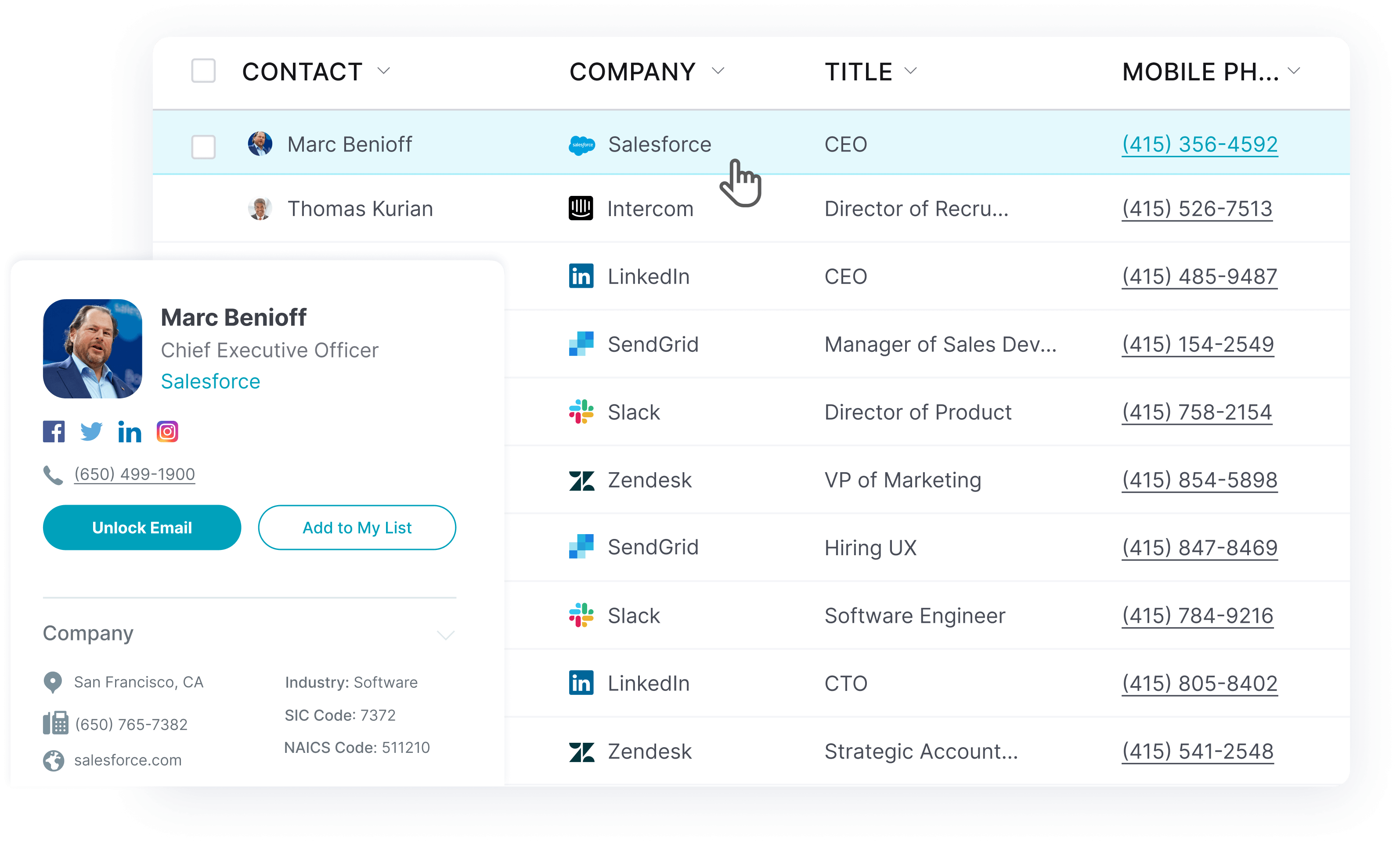
Will: You didn’t go to college or study business; you pretty much just figured everything out on your own. Did you, at any point, feel like you were at a disadvantage because you didn’t go down the “traditional” college route?
Dan: Not at all. When I was 23, I cold-emailed a bunch of successful entrepreneurs (ie. Mark Cuban, Steve Jobs, Bill Gates, etc..) to ask them a question:
When it comes to success – if you had to pick one – which is most important? What you know (your education), who you know (your network) or your drive (passion)?”
Not many replied, but those who did all agreed that formal education wasn’t a defining factor that influenced success.
My favorite answer was from Mark Cuban, who said that the most important thing was to do all three (ie: invest in your education, network and passion) when everyone else is trying to pick one.
After that, I realized that the way forward was to self-educate (ie. become an autodidact) and invest in myself to solve problems.
Will: Spheric Technologies was your first successful company; you ran this company for 4 years, then sold it to Function1. What did you do differently with Spheric Technologies, as opposed to your first two startups?
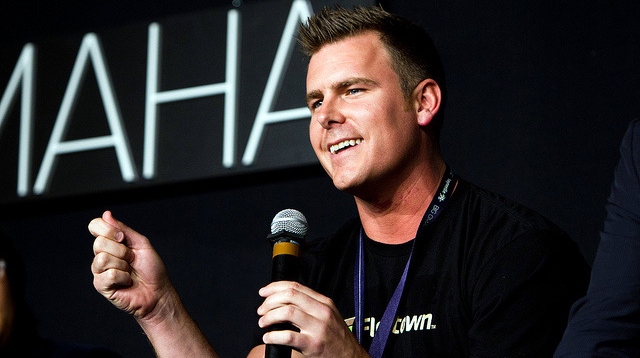
Dan: I hired a coach.
His name was Bob… he was an E-Myth coach. For the uninitiated, I’m referring to The E-Myth Revisited: Why Most Small Businesses Don’t Work and What to Do About It, which is a best-selling book about entrepreneurship.
After reading this book, I realized I wanted to build a company that could run independently of me. I was sold on the approach that the book was recommending (building a franchise prototype).
In fact, I’d say that investing money in a business coach was my equivalent of a Masters in Business education.
Will: After you sold Spheric Technologies, you co-founded Flowtown, a social media marketing platform that helps businesses communicate with their customers. Did you go into this new project knowing that you wanted to sell and exit within a few years?
Dan: No, quite the opposite – I never start a company to exit.
“My focus is to create as much value for my target customer in a way that’s still profitable.”
In the context of Flowtown, we had a solid product hook, but the full product roadmap was definitely uncertain and something we continuously iterated against the whole time we were growing.
What I learn here was that if you work backward from the customer’s needs, you can’t go wrong. It’s when you get too far from the customer, and start building stuff you think they need, that you end up wasting time & money.
Will: Great insight. So after you sold Flowtown, you started Clarity.fm, which is a platform that allows budding entrepreneurs to get advice from reputable experts. Again, you sold and exited within 3 years. What were some of the challenges that you encountered at Clarity.fm, and what was your one most important takeaway here?
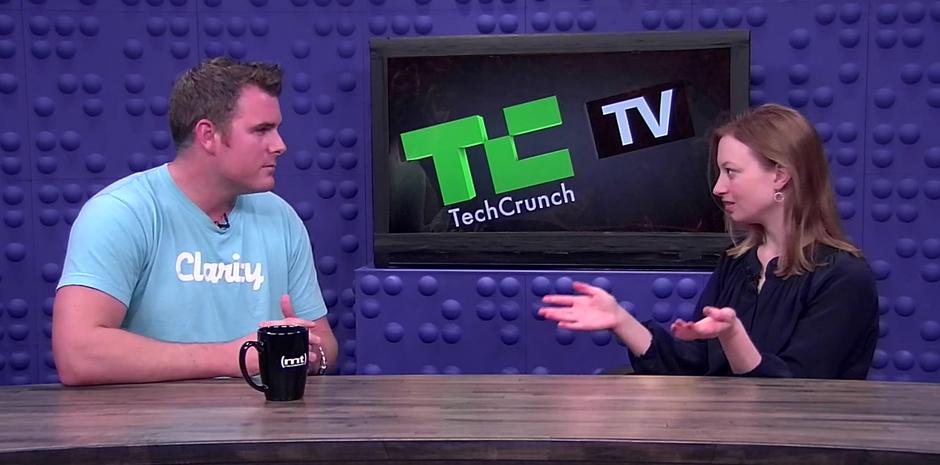
Dan: I ran into many challenges, like you would with any startup. One of the biggest challenges, by far, revolved around the decision to create a marketplace.
Most people don’t know this, but for 6 to 8 months, Clarity was designed as a call tool for batching calls and robo-dialing. Basically, it was a productivity tool.
After we launched out of private beta, I spent 6 months debating if we should add a search function to allow users to find other experts.
Once we did, everything changed. We grew our call volume by 3X, which led to us having to curate and moderate the people on the platform. All in all, we essentially fired 70% of the people using Clarity (some experts, some seekers). That was a tough week.
As for takeaways, I would say the biggest one is:
“Don’t fight the market.”
As entrepreneurs, we often have a vision of what it is we want to build. But if no one shows any interest, we should move to solve the problem people will pay to get resolved.
On starting SaaS Academy
Will: Clarity.fm was pretty much your last gig as an entrepreneur — after that, you pivoted to focus on your coaching business. What made you decide to shift from building businesses to coaching entrepreneurs?
Dan: After I sold Clarity to Fundable/Startups.co, I took some time off to enjoy my young family. My boys were 1 and 2 years old, so we went to San Diego and enjoyed the beach for a while.
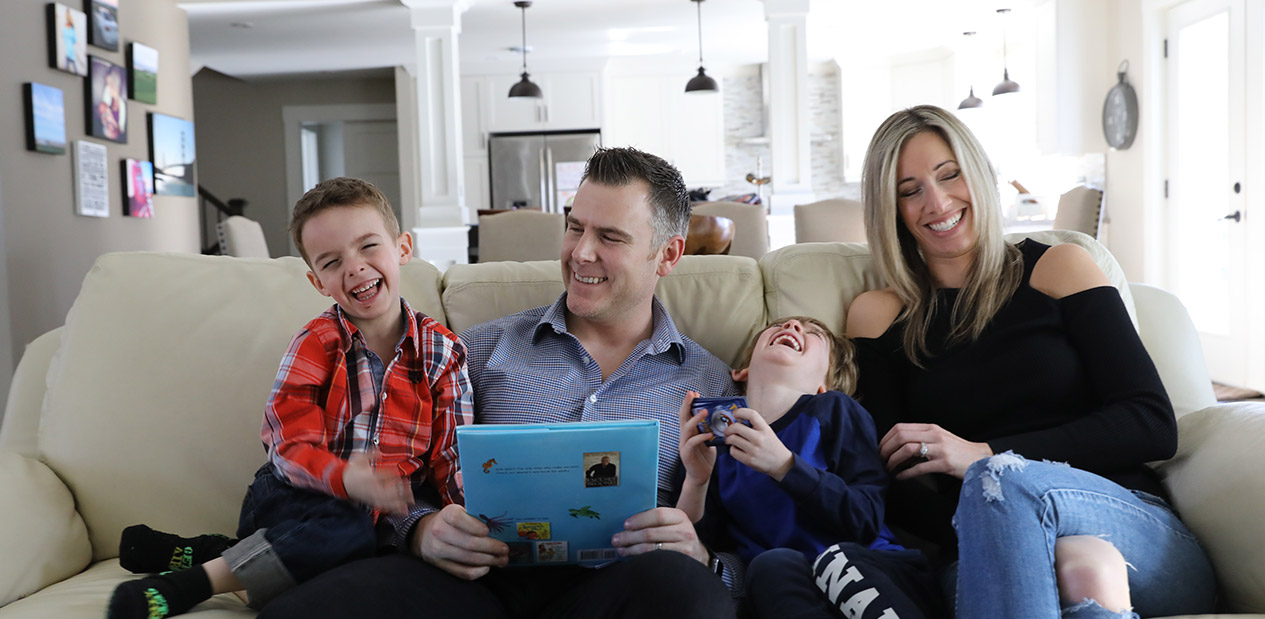
There, I met a guy, Travis – and this changed everything.
Travis was a Clarity fan. He read my blog for years, and asked me why I didn’t start a YouTube channel to teach about startup (ie: my area of expertise on Clarity.)
At the same time, I had a good friend who found out he had a terminal illness. He had 2 girls who were the exact same age as my boys… and when I asked him how he was dealing with his illness, he replied, “I already shot the videos.”
He meant that he had filmed a bunch of videos for his daughters’ birthdays, weddings, and other special events. He also filmed some random clips talking about life lessons he wanted to share with his girls.
My heart broke, but I also realized that I had the opportunity to do something similar, even if I didn’t have a death sentence. It might sound a tad melodramatic, but the truth is we never know when that time would come.
So, I started a YouTube channel.
At first, it was just me, sharing my ideas with a camera. For a year or so, many of my videos were about life and business, not SaaS specifically.
Through my YouTube channel, I started getting requests from startup founders who wanted me to mentor them, but I wasn’t looking to do that. I was more concerned with investing and helping my portfolio companies.
A year and dozens of requests later, I decided to launch a 6 month MBA/Mentorship program called Elite Entrepreneur. Fast forward to today, and I’ve got the largest YouTube channel online for B2B SaaS (Software as a Service) and the #1 coaching businesses for founders.
Will: That’s a pretty powerful story. How does SaaS Academy work, exactly?

Dan: There’s 3 core components to SaaS Academy – Content, Coaching and Community.
When it comes to content, I’ve essentially designed, tested and produced proven playbooks that my clients can use to get results in 4 core areas. I call this my A.C.E.S Growth Model – Attract, Convert, Expand & Scale.
These playbooks are designed to eventually get my clients to a very specific outcome called: The Perfect Exit™. (You’d be surprised – that doesn’t necessarily mean selling).
Next, in coaching, I speak to my clients in coaching calls every month. In these calls, my clients ask me their burning questions, and we discuss their challenges and help them get clarity on the next steps.
That’s not all – I also hire and train world class experts to coach my clients in key topics (tech, product, financials, etc…) in 1-on-1 coaching calls. You can consider this a built-in advisory board of sorts.
Finally, SaaS Academy is also centered strongly on the idea of community. 3 times a year, all the founders in SaaS Academy get together for 2 days to learn advanced strategies that they can use to grow their companies. We pack in a ton of value in these two days (I even have the top SaaS thought leaders come in and speak), but the real purpose is to connect founders, build camaraderie, and reset our strategic plan for the next 100 days.
I always say, people come for the content, they win because of the coaching and they stay because of the community. If anyone’s interested, the first step is to jump on a call.
Will: Playing devil’s advocate for a bit — are there any founders who joined your SaaS Academy, but realized that it wasn’t a good fit for them? How do you deal with these clients?
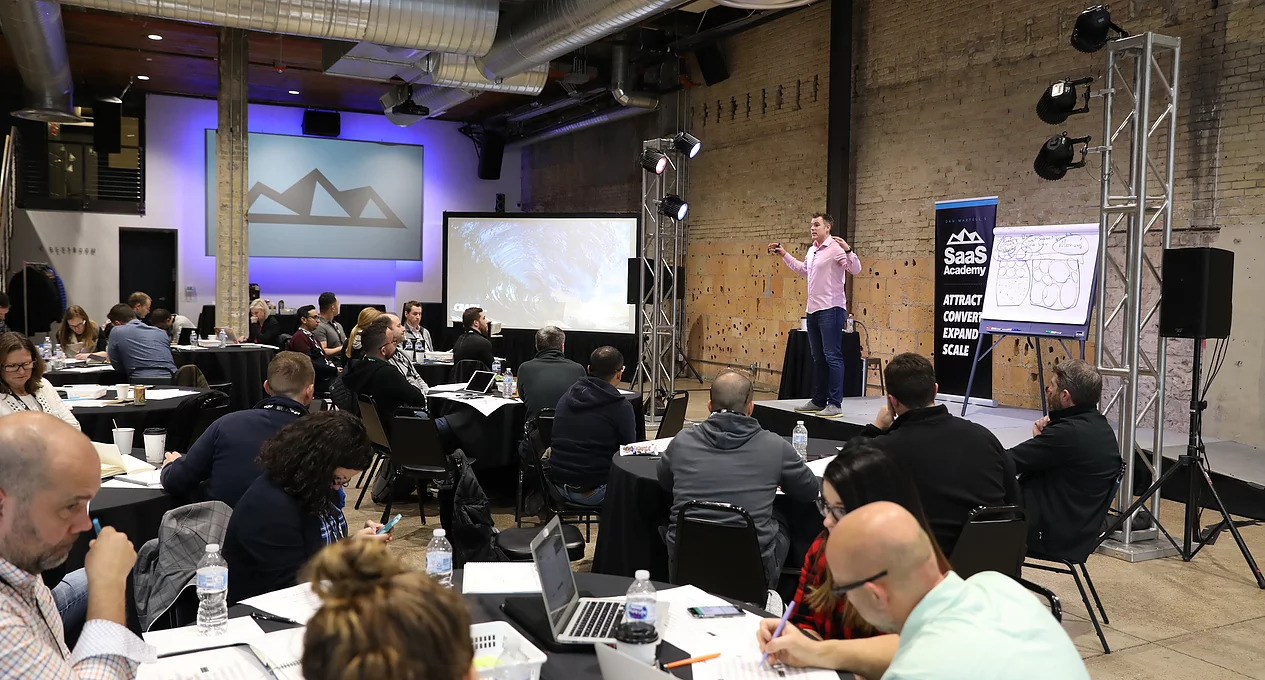
Dan: Of course! We have a thorough application process, and I’m very picky about who I allow into the program – but even with that, we get some bad fits.
I deal with this by offering a 60 day “Love it, or leave it” guarantee. This guarantee isn’t just for my clients – it’s also for me to get a sense of whether the client is committed, whether their values align with mine, etc.
That aside, we also sign a client commitment agreement that clearly outlines the 14 things I’m committing to, and the 3 things I expect of my clients.
“I don’t need another client, I need another success story.”
In the case where a client isn’t a good fit, I give them a full refund and recommend some other coaches they might consider. If someone isn’t doing the work – even if they’re willing to pay – they can’t stay.
Will: How do you compete with the other coaches and programs in the same space?
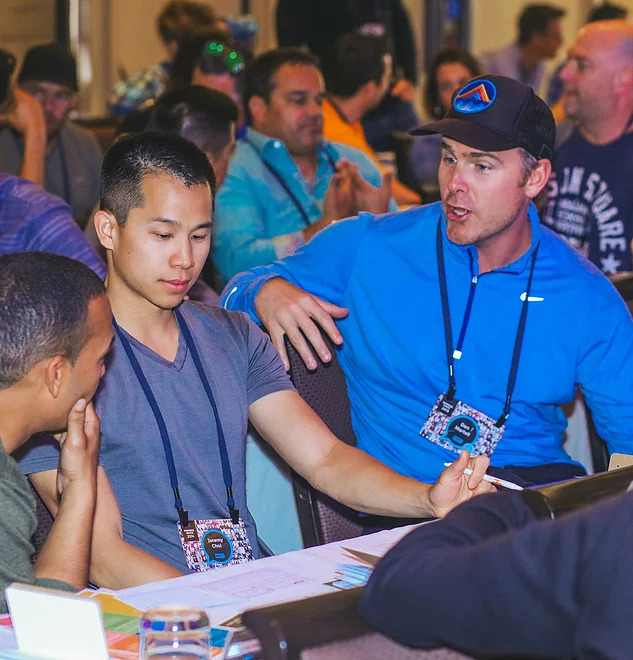
Dan: What I’ve discovered over the years is that most founders will work with different coaches at different phases.
Take myself, for instance. I’ve had 4 different coaches help me scale my business over the past 15 years, because I needed to work on something different at each stage.
So, the way I compete is by being super clear on exactly who my Perfect Fit customer is… and building the best solution or them.
I ONLY coach B2B SaaS founders. No agencies. Marketplaces. Consumer apps. You get the picture.
That aside, I also design my content in a way that ensures my clients get access to the best-proven strategies that are actually working in the market.
And, like I mentioned earlier, I hire the top talent in the industry to coach my clients on specific areas like Tech, Product, Marketing & Finance.
Will: Stepping away from SaaS Academy for a bit, you currently run the biggest YouTube channel for SaaS entrepreneurs in the world. What are some strategies you used to build your YouTube channel?
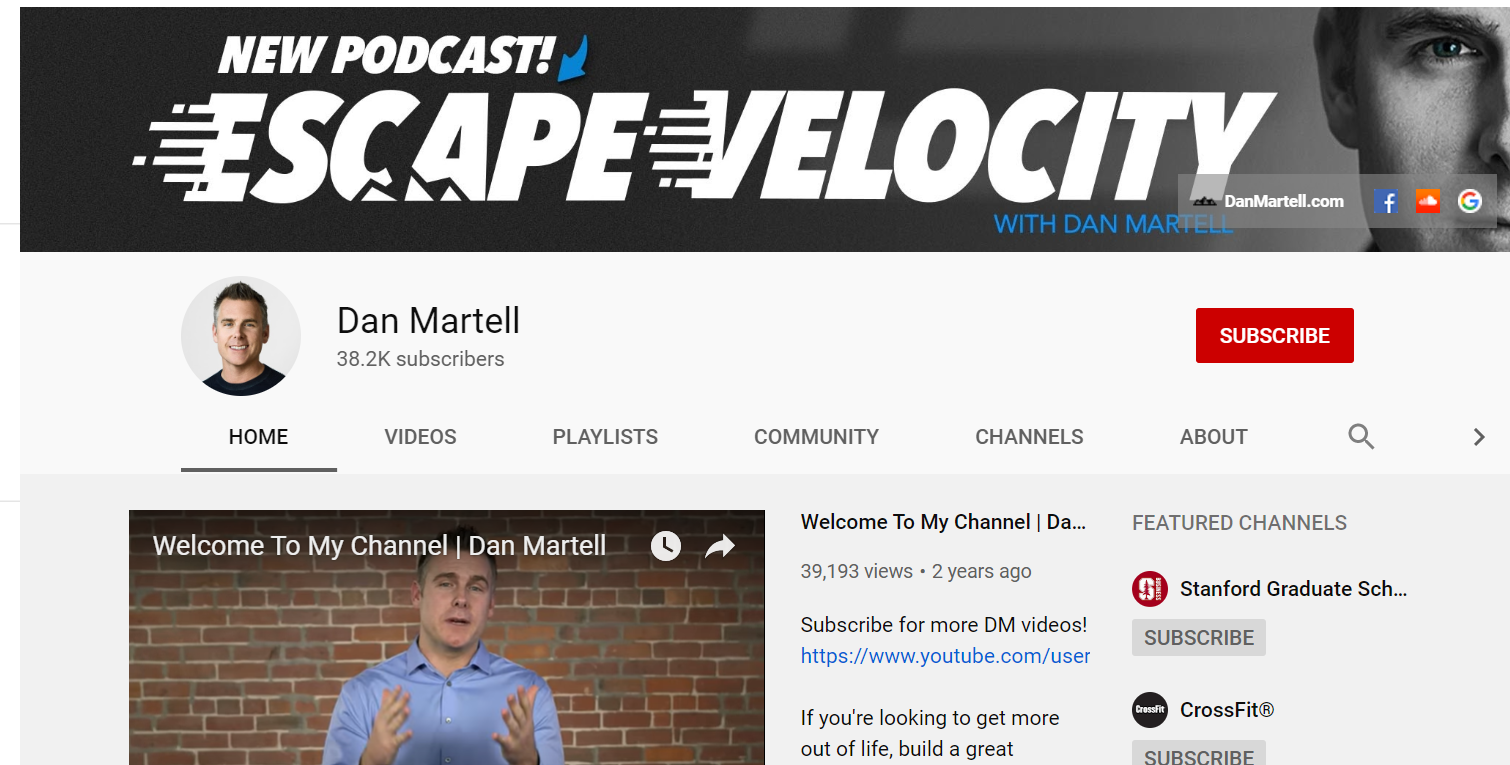
Dan: Honestly, I don’t think I’ve done anything magical.
“It really boils down to consistency.”
I’ve published every Monday, for the past 4 years running. That’s 52 times a year, and I’ve not missed a single week.
On marketing SaaS Academy and increasing retention
Will: What channels do you use to market your SaaS Academy?
Dan: This often changes – right now, I use YouTube, Facebook, LinkedIn. The key is to keep on diversifying, even after you find a channel that brings you great results.
Too often, I see founders rely exclusively on SEO/Inbound or Facebook, etc. One day, the platform changes its algorithm, and their traffic drops by 50%. This means that their growth drops by 50%.
It’s dangerous to not have at least 2+ channels once you get to, say, $83K in MRR.
Will: With SaaS Academy, how do you reduce churn and increase retention?
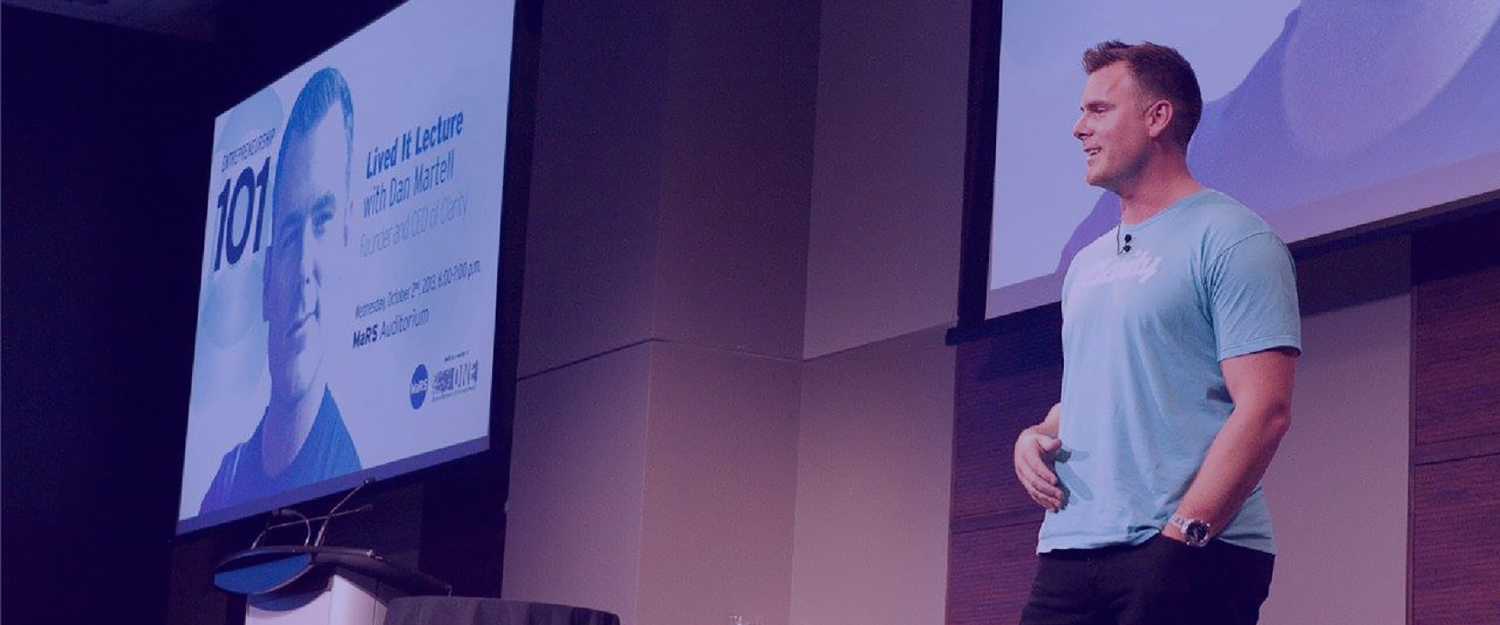
Dan: There’s a ton of different strategies based on your specific product, go-to-market, etc. That said, some of the important things include:
- Ensure you have product-market fit, and that your messaging resonates with your customers. Otherwise, you can be growing trials/demos/sales numbers but losing those people 6 months later.
- Capture the cancellations. I have a process I share in SaaS Academy that helps clients to learn how to improve their products (based on insights from cancellations) and also “save” their cancellations (ie get people who want to churn, to change their mind).
- Pay attention to customer onboarding. Every company should design the specific sequence of their customer journey, from Trial to Purchase to all the “Tent Pole” moments within a customer’s first 100 days. If you get this right, you’ll win yourself customers for life.
I provide 9 more strategies in my Churnbuster Cheatsheet.
On challenges, successes, and key metrics
Will: What is one thing that you struggled with the most when you first created SaaS Academy? What is one thing that you’re struggling with right now?
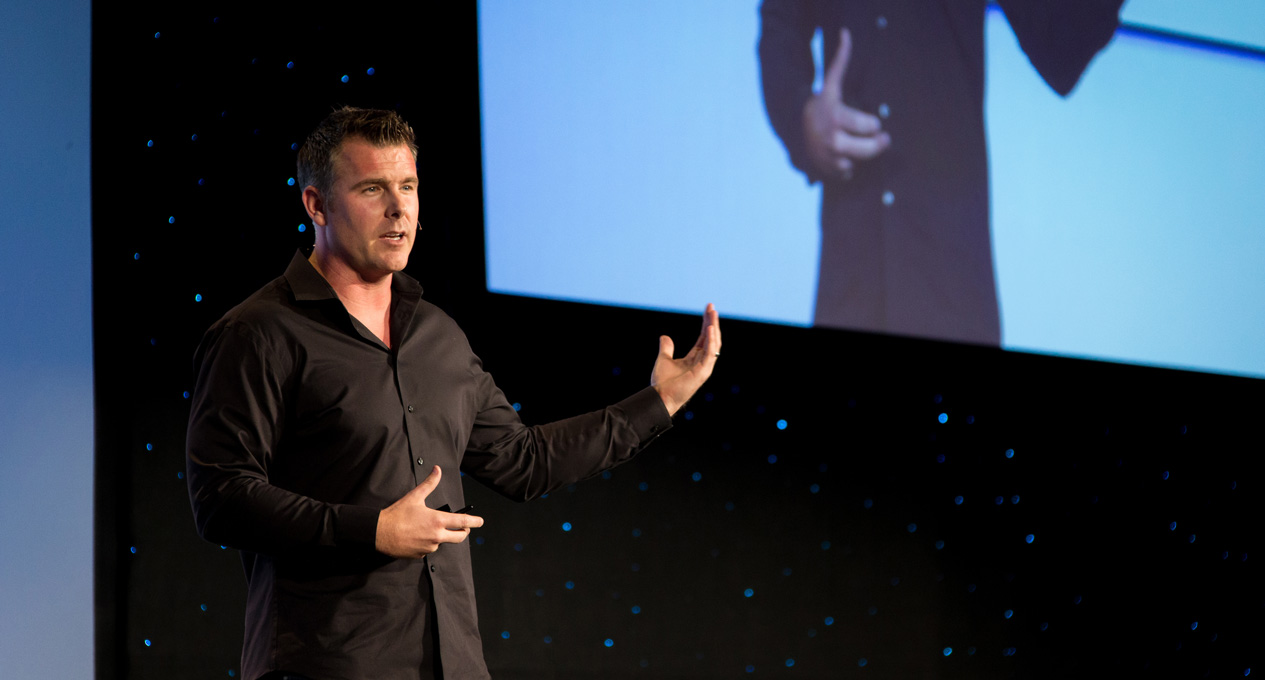
Dan: Great question… I would say, for a long time, I didn’t consider myself a coach.
To be 100% honest, back then, I thought the label and word “coach” was a step down from being a tech founder/investor.
But when my clients wrote about me or talked to their friends about me, they always referred to me as their “coach”. I realized it was hurting my ability to serve more people if I didn’t position myself as a “coach” my website, social accounts and YouTube videos, and so I made the switch.
I’ve got to say, this made a huge impact on my coaching business. Up till today, I’ve got the world’s top VCs and accelerators referring their clients to me, when prior to this they didn’t even realize I had a coaching business.
The thing I struggle with now, and will always struggle with, is to add more value for my clients without overwhelming them.
That’s the #1 thing I’m working with my team on improving.
Will: What would you attribute the success of SaaS Academy to? What are the three most important metrics that you monitor?
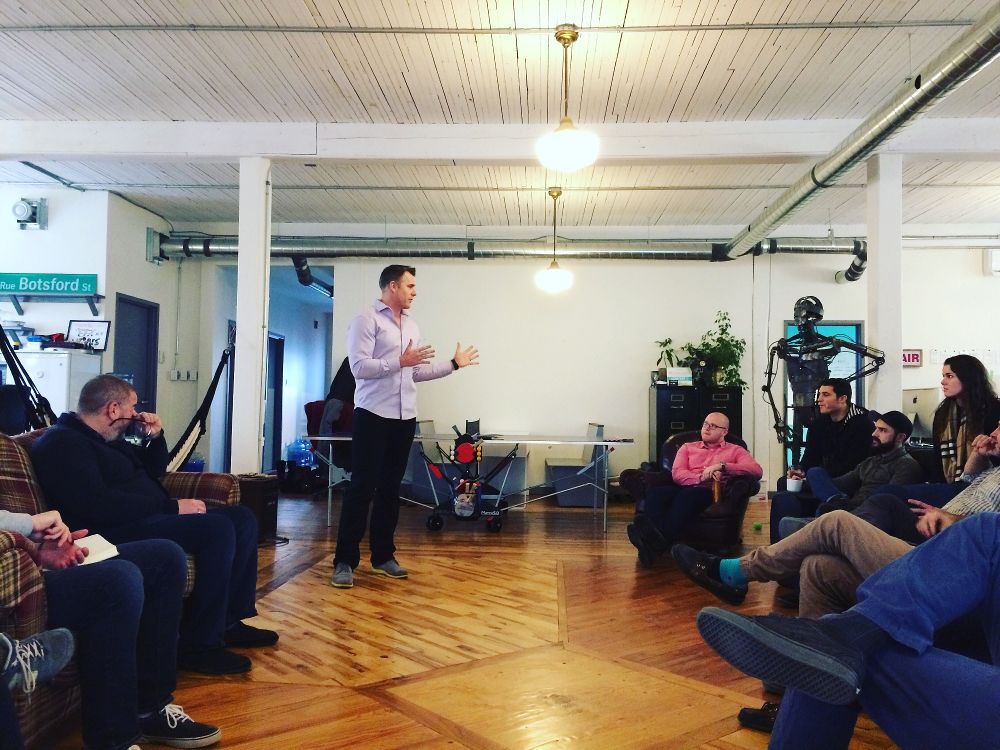
Dan: SaaS Academy is successful because of the fact that I heavily filter my paying clients.
Like I mentioned earlier, I’m obsessed with getting my founders results, and I refuse to work with someone just because they can pay.
With regards to metrics, these are our three most important ones:
- Monthly Recurring Revenue (MRR) growth
- Churn
- Cashflow
On the note of key metrics: I get all my founders to implement my Precision Scorecard™ so they have the data they need to diagnose any issues.
Will: Other than being a coach, you’re also an investor. To date, you’ve invested in 40+ startups, some of which have done amazingly well. What are some of the signs of a promising startup?
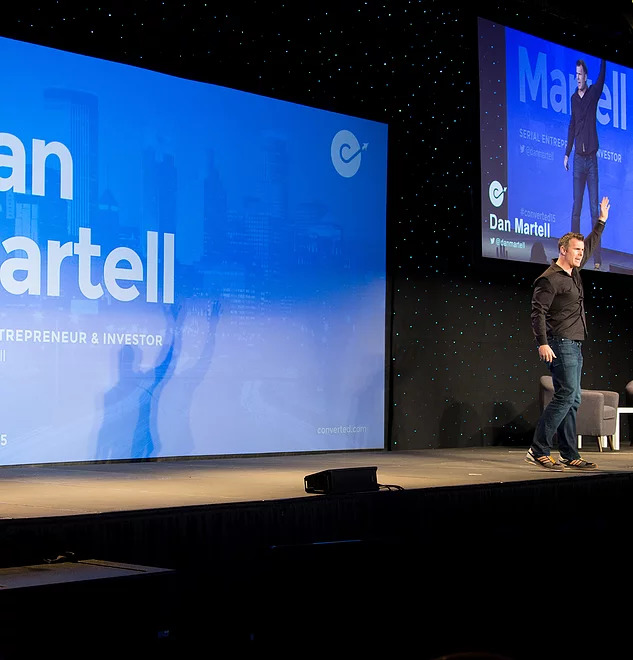
Dan: Here are some things I look for when investing in a startup:
- They need to have a founding team (2+ founders, at least).
- They need to be super smart, and be able to teach me things about their industry.
- I need to feel like they’ll be successful regardless of whether I’m involved.
The rest of it is about how relentless they are, and if they’re willing to fight through the hard times that are guaranteed to come.
Out of the 40+ startups I’ve backed, the four billion-dollar companies that have emerged (Intercom, Hootsuite, GetAround, Udemy) are similar in the sense that they didn’t give up when they faced incredible adversity.
Lifehacks, sources of inspiration, and tips on relaxation
Will: What is your favorite lifehack? (Business or non-business related).
Dan: Creating the Perfect Week and using Block Time to lock it in my calendar based on my vision/goals for my life.
This way, I’m always moving my life forward in meaningful ways.
Will: Which entrepreneur, leader or business owner inspires you the most?
Dan: I’ve got three – Masayoshi Son from Softbank, Robert F. Smith from Vista Equity Partners, and Richard Branson from Virgin.
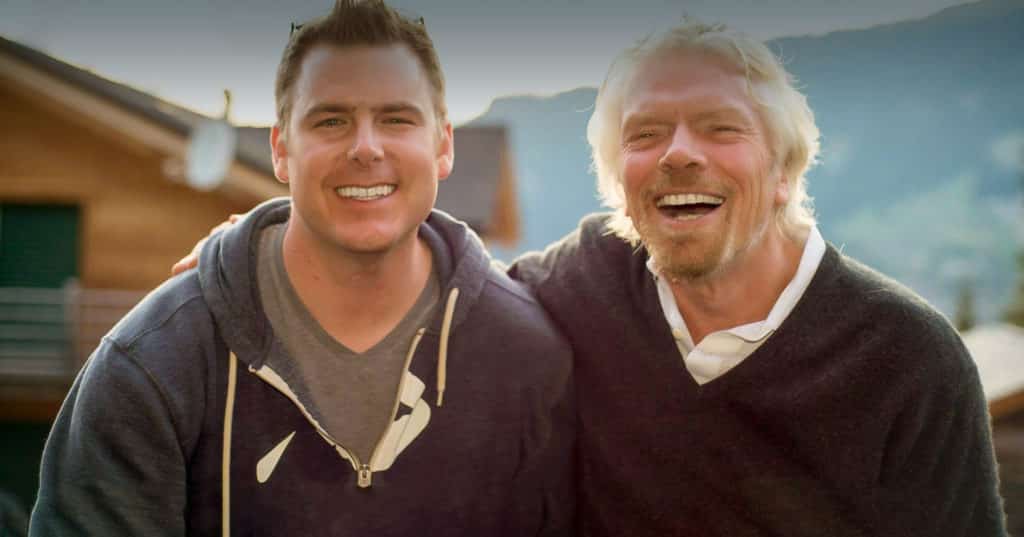
PS: here’s what it was like spending a week with Richard Branson.
Will: What business tool would you find it hard to live without?
Dan: Voxer, which is a walkie talkie app for smartphones.
Will: If you had $10,000,000 to invest in just one public company, what company would it be?
Dan: Amazon. They’re doing great things.
Will: What do you do to destress and relax?
Dan: I meditate. Do CrossFit. Kiteboard. Travel with my family.
I believe in the idea of work-life balance. I probably took over 100 days of vacation this year, but I also got more work done then any previous year!

